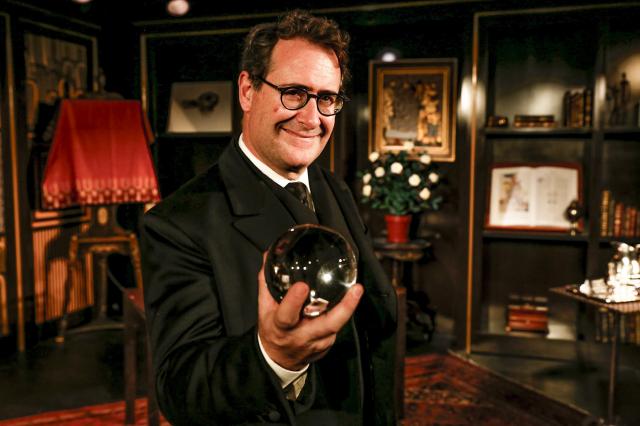
It's not merely the nimble fingers — the mechanics are the same, whether the perpetrator is a professional illusionist charging hefty admissions in Las Vegas or a bartender short-changing an unwary customer. What makes us eager to be bamboozled by a stranger into mistrusting our own senses is the story attached to the manual dexterity. Even when we know how the deception is accomplished — as in the Jean Eugene Robert-Houdin stunt involving a box containing a silk scarf whose weight fluctuates dramatically without human assistance — the hocus-pocus takes on new meaning when we are told that the box is like a sick person and the scarf is like the illness. Oh, did I mention that our magician in The Rosenkranz Mysteries is a doctor? This may seem surprising, since nowadays we think of medicine as a science for "fixing" broken bodies, but from the beginning of time, healers have attested to the role played by circumstance, psychology and sheer luck in curing disease. A proponent of patient-centered health care, Ricardo Rosenkranz often concludes his University classes with magic tricks to illustrate the connection between, and importance of, the physician and patient's confidence in one another — for without the empathy generated thereby, nothing miraculous can happen. This isn't a lecture hall, however, it's the cabaret room at the Royal George, a chamber only slightly bigger than that of the Palmer House's Magic Parlour show, but crammed with a veritable museum of antique artifacts from the golden age of stage magic — notably, a self-blooming rose bush and a re-animated skull — collected by our host (in itself, reason enough to attend the show). Our magician likewise rejects the sly-trickster persona invoked by so many of his ilk, instead proceeding at a leisurely pace and addressing us in the gentle tones of a middle-school teacher whose faith in his calling remains unexhausted. None of this diminishes in any way the feats of "paradigm shift" — a phenomenon of perception associated with double-image pictures — at the heart of his mission. These encompass demonstrations of prognostication, restoration, and empathetic calculus, employing such familiar objects as cards, coins, and alphabet blocks, but also a replication of a seance conducted by Chicago's gilded-age spiritualists, Mary and Elizabeth Bangs, who not only purported to commune with the departed, but to persuade them to pose for a portrait. You can try to guess the secret of a blank canvas transformed to an ancestral likeness right before our eyes, but your evening will be no less entertaining if you just trust the doctor.
